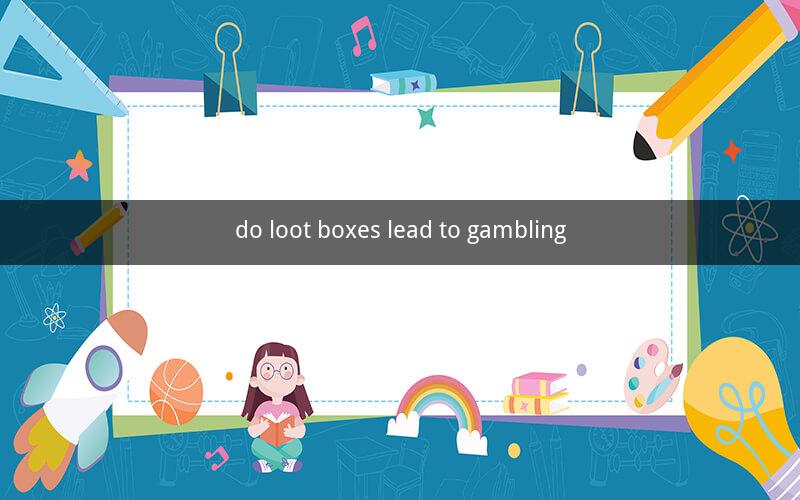
Table of Contents
1. Introduction to Loot Boxes
2. The Concept of Gambling
3. Similarities and Differences Between Loot Boxes and Gambling
4. The Potential Risks of Loot Boxes
5. The Impact on Young Gamers
6. The Industry's Perspective
7. The Role of Regulation
8. Alternatives to Loot Boxes
9. Conclusion
10. Frequently Asked Questions
1. Introduction to Loot Boxes
Loot boxes have become a prevalent feature in video games, particularly in multiplayer online games. These virtual containers contain a random assortment of items that players can use to enhance their gameplay experience. The concept of loot boxes is simple: players pay real money to open them, with the hope of obtaining valuable items.
2. The Concept of Gambling
Gambling, on the other hand, involves betting money or something of value on an event with an uncertain outcome. The primary goal is to win money or a prize. While gambling can be entertaining, it also carries a risk of addiction and financial loss.
3. Similarities and Differences Between Loot Boxes and Gambling
Both loot boxes and gambling involve an element of chance and risk. However, there are some key differences. In gambling, players typically bet on an event or game, while in loot boxes, players pay to open a container with random items. Additionally, gambling usually involves real money, whereas loot boxes can be purchased with in-game currency or real money.
4. The Potential Risks of Loot Boxes
Critics argue that loot boxes can lead to gambling addiction, particularly among young gamers. The allure of obtaining rare and valuable items can drive players to spend more money to increase their chances of success. This can lead to financial strain and, in some cases, addiction.
5. The Impact on Young Gamers
Young gamers are particularly vulnerable to the risks associated with loot boxes. They may not fully understand the implications of spending real money on virtual items and may be more susceptible to the allure of obtaining rare items. This can lead to financial strain, addiction, and even cyberbullying if they are unable to afford the items they desire.
6. The Industry's Perspective
The gaming industry argues that loot boxes are not gambling and that they provide a fun and engaging experience for players. They also claim that the random nature of loot boxes promotes replayability and keeps players interested in the game.
7. The Role of Regulation
Several countries have implemented regulations to address the potential risks associated with loot boxes. For example, the UK's Gambling Commission has classified loot boxes as gambling and has imposed strict regulations on their use. These regulations aim to protect young gamers and prevent them from spending excessive amounts of money on virtual items.
8. Alternatives to Loot Boxes
Some developers have chosen to implement alternative systems to loot boxes. These alternatives include direct purchase of items, crafting systems, and seasonal events. These systems can provide a more balanced and engaging experience for players without the potential risks associated with loot boxes.
9. Conclusion
While loot boxes have become a popular feature in video games, there are significant concerns about their potential risks, particularly for young gamers. The debate over whether loot boxes lead to gambling is ongoing, and it is essential for both the gaming industry and regulators to address these concerns and implement measures to protect players.
10. Frequently Asked Questions
Q1: Are loot boxes considered gambling?
A1: Some countries, like the UK, have classified loot boxes as gambling due to their similarity to betting on an event with an uncertain outcome.
Q2: Can loot boxes lead to gambling addiction?
A2: Yes, there is evidence to suggest that loot boxes can contribute to gambling addiction, particularly among young gamers.
Q3: Are loot boxes only available in multiplayer online games?
A3: No, loot boxes can be found in various types of games, including single-player and multiplayer titles.
Q4: Can players earn in-game currency to purchase loot boxes?
A4: Yes, many games allow players to earn in-game currency through gameplay, which can then be used to purchase loot boxes.
Q5: Are there any regulations in place to protect young gamers from the risks associated with loot boxes?
A5: Yes, some countries have implemented regulations to address these concerns and protect young gamers.
Q6: Can loot boxes promote cyberbullying?
A6: Yes, young gamers who cannot afford to purchase rare items may be targeted by cyberbullies.
Q7: Are there any alternatives to loot boxes?
A7: Yes, some developers have implemented alternative systems, such as direct purchase of items and crafting systems.
Q8: Can loot boxes lead to financial strain?
A8: Yes, spending excessive amounts of money on loot boxes can lead to financial strain and addiction.
Q9: Are loot boxes only available in video games?
A9: No, loot boxes can also be found in other forms of entertainment, such as mobile apps and online platforms.
Q10: Can loot boxes lead to a decrease in the quality of gameplay?
A10: Yes, some players may focus more on obtaining rare items than on enjoying the game itself, which can lead to a decrease in the quality of gameplay.